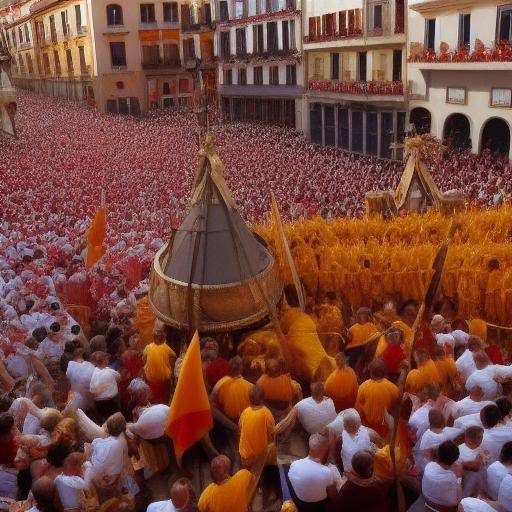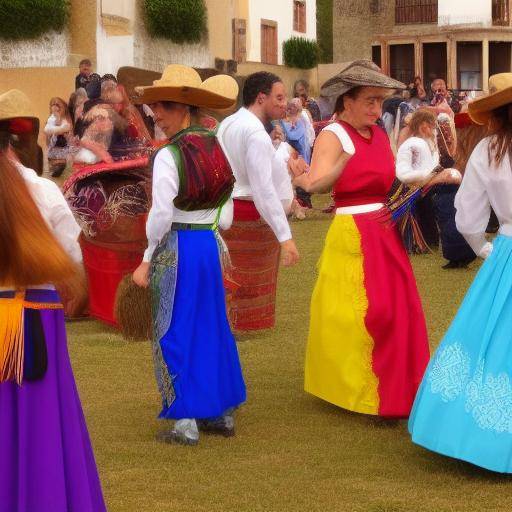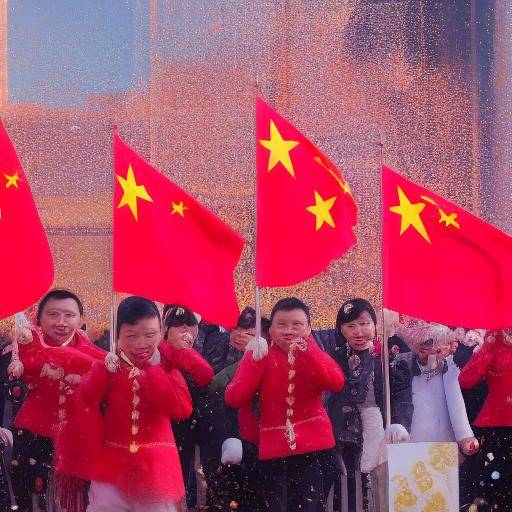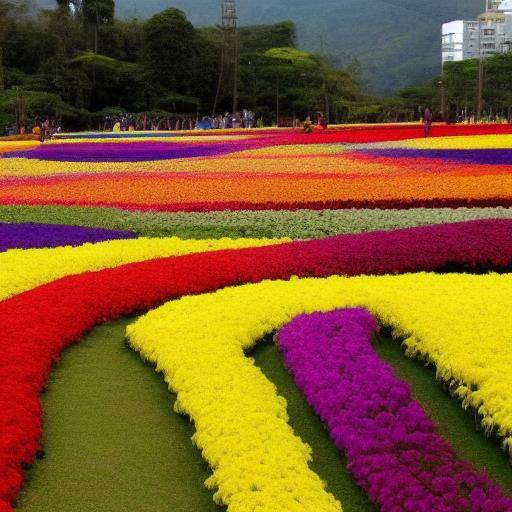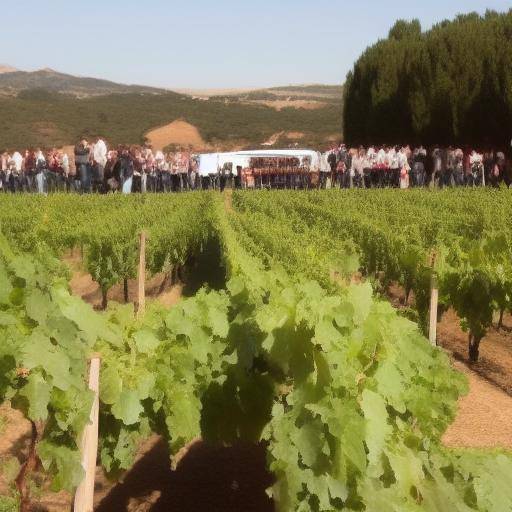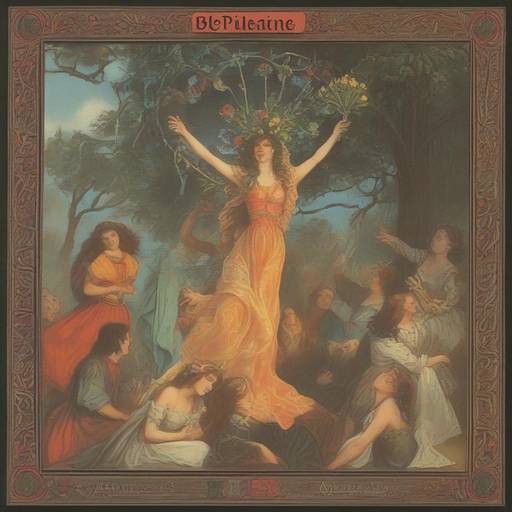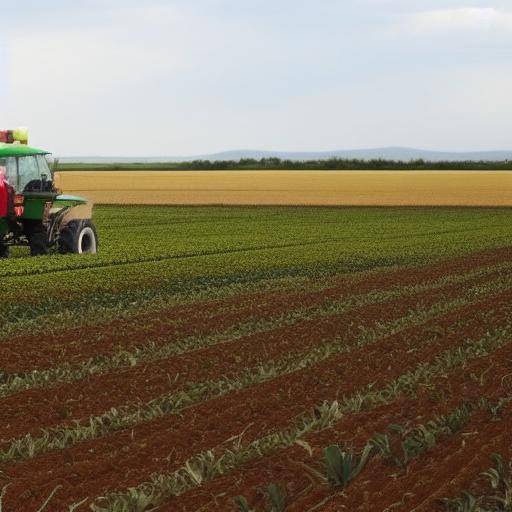
The feast of harvest is a celebration rooted in the history of humanity that honors the culmination of the agricultural season. Throughout the centuries, various cultures around the world have celebrated this event with traditional rituals, ceremonies and festivities. In this article, we will explore the rich diversity of harvest parties, associated traditions and agricultural celebrations in different cultural contexts. From Europe to Asia, from Africa to America, each region has its own way of honoring the importance of agriculture and the generosity of land. Along these lines, we will discover the history, the current practices, the challenges and opportunities surrounding the feast of harvest and its traditions.
Introduction
The harvest party is much more than just a celebration. It is a time to recognize the hard work of farmers, the connection with land and gratitude for the fruits of nature. Over the centuries, the harvest festivals have evolved, influenced by local traditions, religious beliefs, and historical contexts, but their essence endures as a manifestation of respect and celebration of nature.
History and Background
The roots of the harvest feast go back to ancient civilizations, where agriculture was the fundamental basis of society. Cultures such as Egyptian, Roman, Greek and Indian developed rituals and festivals to honor the deities that governed the fertility of the earth and the success of the harvests. These celebrations were also permeated with a profound religious sense, as deities were considered to be honoured and peaceful to ensure fruitful agricultural cycles.
Throughout the centuries, the harvest festivals spread around the world, adopting the nuances and traditions of each culture. In Europe, festivals such as Oktoberfest in Germany or the April Fair in Spain have deep roots in agricultural celebrations. In America, Thanksgiving is an iconic example of a harvest festival that crossed borders to become a rooted tradition.
Analysis in Deep
The harvest party is not only a festive celebration, but also involves challenges and opportunities. In modern society, agriculture faces problems such as sustainability, equitable food distribution and environmental impact. Contemporary agricultural celebrations also seek to raise awareness of the importance of local products and support for local farmers.
Comprehensive review
Harvest festivals differ in each region, but all share the common essence of celebrating the fruits of agricultural work. Some festivities focus on ancestral rituals, while others have evolved to integrate modern agricultural technology and practices.
Comparative analysis
While harvest parties share similar goals, cultural and regional differences play a crucial role in the way they are celebrated. While in some places the festivities focus on religious rituals, in others music, dance and gastronomy occupy a central place.
Practical Tips and Recommendations
The celebration of the harvest party can be an opportunity to promote sustainable agriculture, conscious consumption and appreciation of local products. Some ideas include promoting farmers markets, organizing workshops on traditional agricultural techniques and fostering collaboration between farmers and local communities.
Industry Perspectives and Expert Reviews
Experts on agriculture, sustainability and anthropology provide valuable insights on harvest parties. Their views reflect the cultural, environmental and social importance of these celebrations, as well as the challenges and opportunities facing agriculture today.
Case Studies and Real Life Applications
Harvest festivals are not only a cultural expression, but also have a significant impact on the economy, tourism and well-being of local communities. Case studies from different regions of the world allow us to understand how these celebrations influence various aspects of society.
Future Trends and Predictions
As the world faces challenges such as climate change, food security and globalization, harvest parties will evolve to adapt to new realities. Future predictions suggest that these celebrations will continue to play a crucial role in promoting sustainable agriculture and strengthening community ties.
Conclusion
The feast of harvest, with its varied manifestations around the world, represents a tribute to human labor, the generosity of nature and the celebration of life. Through historical exploration, contemporary analysis and future perspectives, we have acquired a deeper understanding of the rich diversity of harvest parties and their resonance in modern society. Each celebration, whether an Oktoberfest in Munich, an Onam in India or a Tet Trung Thu in Vietnam, reflects the deep connection between people, land and gratitude for the fruits of nature.
Frequently asked questions
What is the cultural importance of harvest parties?
Harvest festivals are of great cultural importance as they reflect the connection of communities with land, agriculture and nature. These celebrations honor values such as gratitude, generosity and tradition.
How have harvest parties evolved over time?
Throughout history, harvest parties have evolved in response to social, cultural and economic changes. New influences, technological innovations and contemporary challenges have shaped the way these holidays are celebrated.
How do harvest parties affect the local economy?
Harvest festivals often have a significant impact on the local economy, especially in rural areas where agriculture is the main source of income. Tourism, the sale of local products and trade activities related to festivities contribute to economic development.
What are the current challenges facing harvest parties?
Some of the current challenges include the preservation of traditions in a modern world, environmental impact management, and the inclusion of marginalized communities in celebrations.
How can we participate and support harvest parties?
One way to participate and support the harvest festivals is to involve us in local activities, buying products from local farmers during the holidays and promoting awareness of the cultural and environmental importance of these celebrations.
What is the impact of harvest parties on the preservation of traditional agriculture?
Harvest festivals play a crucial role in preserving traditional agriculture by keeping ancestral practices alive, promoting knowledge sharing and highlighting the importance of traditional agricultural techniques.
In short, the feast of harvest is a celebration rooted in the rich history of humanity and its relation to agriculture. Through vibrant festivities, ancestral rituals and contemporary practices, different cultures around the world honor the generosity of the earth, strengthen community ties and promote agricultural sustainability.

